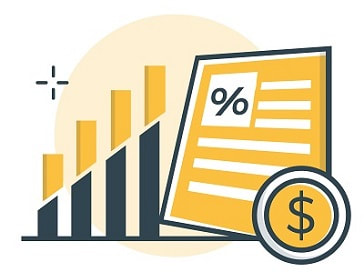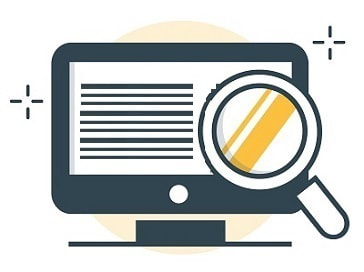Buying New Zealand Corporate Bonds
Our definitive guide explains essential facts to help you understand the risks of buying corporate bonds. We also look at what bonds are available, how to buy them and how to sell them.
Updated 22 July 2024
Summary
Know This: Our guide is specifically focused on corporate bonds in New Zealand and won’t touch upon the basics of bonds, the pros and cons of bonds, the best way to assess a bond and key terminology relating to bonds. If you’re learning about bonds for the first time, check out our definitive guide on how to buy and sell bonds. This guide is intended to describe New Zealand corporate bonds specifically.
Our guide covers:
Summary
- The bond market is one area of investing that has gone relatively unnoticed. However, the size of the global bond market is larger than the global size of the stock market.
- As of 2024, the size of the global bond market was around USD 100 trillion, whereas the size of the global stock market is around USD 70 trillion. In other words, the global bond market is over 30% larger than all the stocks in the world. Most of the bonds are government-issued rather than corporate, although the combined value of corporate bonds has historically been increasing per media reports.
- That said, bonds aren't as easy to trade as stocks, which are widely accepted as one of the easiest ways to invest. Unfortunately, this fact and a few misconceptions about bonds have led to a general lack of interest in bond investing amongst retail (non-professional) investors.
- This guide explains what New Zealand corporate bonds are, how you can invest in corporate bonds and the key considerations of investing in corporate bonds. We'll also walk through the top facts you need to know and the most frequently asked questions about New Zealanders' corporate bonds in New Zealand.
- We also focus on three ways you can buy bonds, and how to sell them.
- Important: As seen in 2022 and 2023 around the globe, rising interest rates have caused massive losses in bond prices. Therefore, it's important to recognise that while investing in bonds may be lower risk than other asset classes (such as shares or property funds), it is not risk-free. You can still lose money on bonds, so make sure you take the time to do the proper research before buying.
Know This: Our guide is specifically focused on corporate bonds in New Zealand and won’t touch upon the basics of bonds, the pros and cons of bonds, the best way to assess a bond and key terminology relating to bonds. If you’re learning about bonds for the first time, check out our definitive guide on how to buy and sell bonds. This guide is intended to describe New Zealand corporate bonds specifically.
Our guide covers:
- What is a New Zealand corporate bond?
- Why would I want to buy corporate bonds in New Zealand?
- What are the different types of New Zealand corporate bonds?
- What do I need to know before buying New Zealand corporate bonds?
- What is the process involved in buying New Zealand corporate bonds?
- Must-Know Facts about New Zealand corporate bonds
- Frequently Asked Questions
- How do New Zealand corporate bonds impact KiwiSaver funds (and Conservative funds in particular)?
What is a New Zealand corporate bond?
A New Zealand corporate bond is issued by a corporation domiciled or operating in New Zealand. For example, a bond issued by ASB Bank would be considered a corporate bond. Companies issue corporate bonds for any number of reasons. For example, companies may need capital to invest in new buildings or infrastructure, want some extra cash in case something adverse happens to their business, or to increase dividend payments to shareholders.
Listed vs Unlisted Bonds
Corporate bonds can be either listed (for example, on the NZX) or unlisted. Whether a corporate bond is listed or unlisted has little impact on the characteristics of the bond. A bond's listing status only impacts the "liquidity" of the bond (how easy it is to buy or sell). Generally, unlisted bonds are less easy to access or purchase compared to listed bonds.
In most cases, corporate bonds will return more than government bonds (known as Kiwi bonds). This higher return profile is because corporate bonds are supposedly more risky than government bonds, meaning investors will demand more reward for taking on that risk, which normally comes through higher yields.
NZ Corporate bonds usally pay more than Kiwi bonds
The high risk associated with companies vs the government is why, when comparing New Zealand corporate bonds to New Zealand government bonds, the yield on corporate bonds may be a few hundred basis points (100 basis points = 1%) higher than government bonds. For example, the current one-year Kiwi bond interest rate is 3.50% per annum. However, compared to some of ASB's corporate bonds on the NZX debt market, the interest rate on those bonds is around 5% per annum.
Listed vs Unlisted Bonds
Corporate bonds can be either listed (for example, on the NZX) or unlisted. Whether a corporate bond is listed or unlisted has little impact on the characteristics of the bond. A bond's listing status only impacts the "liquidity" of the bond (how easy it is to buy or sell). Generally, unlisted bonds are less easy to access or purchase compared to listed bonds.
In most cases, corporate bonds will return more than government bonds (known as Kiwi bonds). This higher return profile is because corporate bonds are supposedly more risky than government bonds, meaning investors will demand more reward for taking on that risk, which normally comes through higher yields.
NZ Corporate bonds usally pay more than Kiwi bonds
The high risk associated with companies vs the government is why, when comparing New Zealand corporate bonds to New Zealand government bonds, the yield on corporate bonds may be a few hundred basis points (100 basis points = 1%) higher than government bonds. For example, the current one-year Kiwi bond interest rate is 3.50% per annum. However, compared to some of ASB's corporate bonds on the NZX debt market, the interest rate on those bonds is around 5% per annum.
Why would I want to buy corporate bonds in New Zealand?
- People buy bonds for all sorts of reasons. Whether it's due to its more defensive nature, adding additional diversification to a holistic investment portfolio or creating a form of passive income, bonds can be an extremely useful asset in an investment toolkit.
- Specifically, investors may want to buy corporate bonds as they more easily understand the underlying companies issuing the bonds. For example, if you are a current customer or work in the financial services space, you may have additional insights into which of the New Zealand banks are best. These insights can mean that you may be able to pick the best corporate bond to purchase.
- Usually, New Zealanders will be much more familiar with local companies' bonds than offshore ones. This advantage is one of the reasons why there is a preference for buying New Zealand corporate bonds over offshore corporate bonds.
Bonds vs Term Deposits - Which make a better investment?
To make an informed investing decision, we list must-know facts:
- Both offer a fixed rate of return and, unless the bond defaults, security and a guarantee of repayment. However, bonds are subject to interest rate fluctuations which increase or decrease bond prices. Generally, bond prices fall when interest rates rise, as has happened throughout 2022.
- Furthermore, not all corporate bonds are the same - before buying a bond, you must do due diligence to find out what company you're lending money to and how realistic they'll be able to repay it.
- Bond markets continue to be volatile, and even though there's no requirement to sell a bond on the secondary market, the price goes up and down with interest rate movements. Term deposits don't have this issue - you choose a term, lock it in for (usually) three months to five years (in most instances) and get an ongoing fixed return and your money back at the end of the term.
- KiwiSaver funds investing in bonds have seen negative returns as interest rates increase. As explained in this October 2022 NZ Herald article, "bond values have fallen sharply this year thanks to rising interest rates, meaning that on average, conservative KiwiSaver funds have decreased more than balanced and growth funds - a highly unusual situation".
- While bonds are essentially similar to term deposits, any continuous rise in interest rates makes them less 'valuable' to investors, given the interest rate is fixed, and therefore the bond 'value' and market price decreases. Therefore, if interest rates continue to rise, there will likely be a downturn in the NZ corporate bond market. This S&P graph shows the New Zealand corporate bond market index which helps visualise the changing price in bonds.
What are the different types of New Zealand corporate bonds?
Bonds will vary in their "ranking" or "seniority" compared to other bonds (and shares). For example, corporate bondholders normally get their money back before shareholders if the company were to go bankrupt given debt is paid out before equity. However, corporate bonds will also have a different "ranking" than other bonds in the same company.
The main types of New Zealand corporate bond characteristics include:
The main types of New Zealand corporate bond characteristics include:
- Investment grade bonds - Investment grade bonds are classed as investment grade due to their high-quality nature. Whether that's due to the high-quality business, safe industry or strong balance sheet, investors generally accept a lower yield on these bonds because there's less perceived risk of the company going bankrupt.
- High yield bonds - Colloquially known as junk bonds, high-yield bonds are typically considered higher risk or lower quality than investment-grade bonds. Generally, the companies that issue junk bonds are less safe and may have higher defaults (can't pay their bondholder coupons) than investment-grade bonds. As a result of this higher risk, investors demand a higher yield than Kiwi or investment-grade bonds.
- Senior bonds - Senior bonds indicate the rank of the bond relative to other bonds. For example, senior bonds will "rank ahead" of subordinated bonds, meaning senior bondholders will get paid out before other bondholders in the event of the company's bankruptcy.
- Subordinated bonds - In contrast to senior bonds, subordinated bonds indicate the bondholder will get their money later on in the priority list of investors to pay in the event of bankruptcy/financial trouble. As a result, subordinated bondholders will usually demand higher yields due to this higher risk of not getting paid back.
What do I need to know before buying New Zealand corporate bonds?
- If it's your first time buying any type of security (this includes bonds but also stocks), your broker will organise a Common Shareholder Number ("CSN") for you. The brokers will use the two main registrars in New Zealand (Computershare and Link Market Services) to file and record all your bond (and stock) holdings. You will need a CSN to trade bonds listed on the NZX. For more information on CSNs, check out our guide.
- If you're looking to buy unlisted bonds (bonds that aren't publicly traded on the NZX), you'll want to ask your broker about these options. The broker will likely be able to advise on the unlisted bonds they've dealt with in the past and any upcoming listings that might suit you and your financial situation. However, whether the bonds you purchase are listed or unlisted, the registrar is the main record-keeping place that tracks your transactions.
What is the process involved in buying New Zealand corporate bonds?
- A registered broker is the main way to purchase New Zealand corporate bonds. Therefore, the first step will be registering for an account with the broker in question. Some brokers may require a minimum account balance to allow you to transact with them.
- The main reason for this is that the process of buying and selling corporate bonds is a much higher burden than just buying stocks online. Usually, more manual checks and balances are needed when buying bonds over the phone.
- Please note, the minimum investment in NZ corporate bonds is around $5,000 to $10,000.
Brokers with software platforms to buy or sell bonds
Brokers that are largely manual or that need an advisor to place the trade
- Craigs Investment Partners
- Macquarie New Zealand
- Goldman Sachs New Zealand
- Forsyth Barr
- JB Were
- UBS New Zealand
You can find the full list of all registered New Zealand bonds in the NZX bond market on the NZDX website. Currently, there are around 150 debt instruments listed debt instruments on the NZX totalling a value of around NZD 50 billion. Some of the popular New Zealand companies that have live listed bonds on the NZX include:
Financial Institutions
- ASB Bank
- ANZ Bank
- Bank of New Zealand
- Kiwibank
- Westpac New Zealand
Infrastructure/Telecommunication/Energy
- Chorus
- Fletcher Building
- Infratil
- Auckland International Airport
- Genesis Energy
- Mercury New Zealand
- Vector
- Z Energy
Real Estate/Healthcare
- Kiwi Property Group
- Precinct Properties
- Metlifecare
- Ryman Healthcare
- Summerset Group
How can I buy listed NZ corporate bonds?
There are three popular ways:
1. New bond issues
Companies issuing bonds distribute them through brokers, for example, Craigs Investment Partners and Jarden. So, for example, a typical bond issue could see ASB Bank issuing a $20m bond and distributing it through Jarden, Craigs and Forsyth Barr.
How do I buy a new issue bond?
You will need to be a client of a broker to be eligible, who will likely email their client list asking if you want an allocation. If you confirm, you'll apply to buy the bonds and make a payment to the broker to settle the purchase.
Some brokers may provide a software platform that allows you to purchase bonds online, while others require you to manually call or place an order with the broker.
2. Secondary bond market
Listed NZ corporate bonds are found on the NZDX (NZ Debt Exchange), allowing investors to buy and sell bonds before their maturity date.
How do I buy a secondary bond?
You'll need to use a broker (such as those mentioned below) to buy and sell bonds on the NZDX. The brokerage fee for bonds starts at around $30. For example, Jarden charges the following:
3. Managed Funds
Managed funds may also include bonds; a bond-focused bond will invest in dozens of different company bonds, diversifying your risk.
How do I buy a managed fund that invests in bonds?
You can contact a fund manager focusing on bond-based funds and invest accordingly. Usually, there isn't any brokerage or commission charged, but you'll need to pay an ongoing fund management fee, diminishing some of the returns your bonds make.
1. New bond issues
Companies issuing bonds distribute them through brokers, for example, Craigs Investment Partners and Jarden. So, for example, a typical bond issue could see ASB Bank issuing a $20m bond and distributing it through Jarden, Craigs and Forsyth Barr.
How do I buy a new issue bond?
You will need to be a client of a broker to be eligible, who will likely email their client list asking if you want an allocation. If you confirm, you'll apply to buy the bonds and make a payment to the broker to settle the purchase.
Some brokers may provide a software platform that allows you to purchase bonds online, while others require you to manually call or place an order with the broker.
2. Secondary bond market
Listed NZ corporate bonds are found on the NZDX (NZ Debt Exchange), allowing investors to buy and sell bonds before their maturity date.
How do I buy a secondary bond?
You'll need to use a broker (such as those mentioned below) to buy and sell bonds on the NZDX. The brokerage fee for bonds starts at around $30. For example, Jarden charges the following:
- Greater of NZ$30.00 per trade or 0.50% of trade value up to NZ$50,000
- For trades with a trade value exceeding NZ$50,000, 0.50% for the first NZ$50,000; plus 0.35% for the portion of the trade value exceeding NZ$50,000
- For example, a $25,000 bond will cost $125 to buy on the secondary market. If you later sell it on the secondary market for a similar price, you'll pay another $125. If you wait for the bond to mature, you won't pay any brokerage.
3. Managed Funds
Managed funds may also include bonds; a bond-focused bond will invest in dozens of different company bonds, diversifying your risk.
How do I buy a managed fund that invests in bonds?
You can contact a fund manager focusing on bond-based funds and invest accordingly. Usually, there isn't any brokerage or commission charged, but you'll need to pay an ongoing fund management fee, diminishing some of the returns your bonds make.
How do I sell listed NZ corporate bonds?
There are two popular ways:
1. Hold the bond until it matures
All bonds have a maturity date whereby the money will be returned to you. If you wait until this date, there is no brokerage fee.
2. Secondary bond market
As explained above, the NZDX (NZ Debt Exchange) allows investors to buy and sell bonds before maturity. If you sell via the NZDX, you'll usually pay brokerage at least $30 in brokerage fees and we suggesting readings Jarden's bond fee schedule to understand the costs of selling bonds before maturity.
3. Managed Funds
If you want to sell some or all of a managed fund, you'll need to contact your fund manager's client services team and ask for a redemption of your fund (either all of it, or a portion).
1. Hold the bond until it matures
All bonds have a maturity date whereby the money will be returned to you. If you wait until this date, there is no brokerage fee.
2. Secondary bond market
As explained above, the NZDX (NZ Debt Exchange) allows investors to buy and sell bonds before maturity. If you sell via the NZDX, you'll usually pay brokerage at least $30 in brokerage fees and we suggesting readings Jarden's bond fee schedule to understand the costs of selling bonds before maturity.
3. Managed Funds
If you want to sell some or all of a managed fund, you'll need to contact your fund manager's client services team and ask for a redemption of your fund (either all of it, or a portion).
Must-Know Facts about New Zealand corporate bonds
1. You don't have to hold all bonds to "maturity" (the term where the initial amount you paid gets paid back to you).
- If you've purchased a New Zealand corporate bond, you don't have to hold it for the entire period of the bond's life. At any point (for listed bonds), you can buy or sell them on the open NZX market.
- While there may be fluctuations in the price you can get for the bond (due to the typical bond risks such as duration risk, inflation risk and interest rate risk, which you can read more about in our dedicated guide), it doesn't mean you're locked in.
- For example, some investors may need short-term cash or come across a more compelling investment opportunity and wish to generate some cash by selling their New Zealand corporate bonds.
2. New Zealand corporate bonds may lack liquidity compared to offshore bonds
- Because New Zealand corporate bonds are relatively unpopular for many, and the number of bonds on offer is low relative to the number of offshore bonds, New Zealand corporate bonds "change hands" much less often than popular offshore bonds (such as Tesla, Microsoft or Meta). This characteristic means that there may be no buyers or sellers transacting on a certain bond on any given day.
- This illiquidity can cause massive spreads in the prices people are willing to buy and sell bonds. It's important to note this if you were extremely keen to sell a bond you held on a given day, but nobody was willing to buy at the typical market price, you may have to accept a significantly reduced price to sell the bond that day.
- In contrast, if you were looking to sell a Tesla bond, there would be many thousand buyers and sellers all transacting, so you're more likely to be able to sell the Tesla bond at a price close to what the "market" is paying.
3. Be wary of the fees (both explicit and implicit) you’re paying, especially when dealing with brokers that manually place trades.
- If you're purchasing New Zealand corporate bonds through a broker (and not DIY through a platform like ASB securities or Jarden Direct), make sure you ask the broker about the typical fees associated with purchasing those bonds.
- Generally, the higher the number of touchpoints the broker needs to do that aren't automated (like setting up your account, placing the order, phoning to find a buyer, etc.), the more fees they will charge you to do this. After all, a broker's time isn't free. Usually, if the transaction volume is small, they may add fees to compensate for their smaller commissions on the trade.
- In contrast, online trading platforms are much less hands-on, so their fees and costs are usually much more competitive. That said, purchasing bonds (either through an online trading platform or through a broker) will usually be much more costly than shares, given the trading volume on bonds is less, leading to higher costs per transaction.
Frequently Asked Questions
What are some misconceptions about bonds?
One of the biggest misconceptions is that bonds are low risk and are "defensive" in nature. While this may be true relative to other asset classes such as stocks or crypto, bonds are not risk-free (except Kiwi bonds - which are likely close to risk-free given they are guaranteed and backed by the New Zealand government).
The reason why bonds are not risk-free is that bond prices and interest rates move in opposite directions. For example, as interest rates rise (which is what is currently happening in New Zealand), new bonds issued at the higher interest rates are issued at "face value" (known as the flat starting value of the bond - usually denominated at 100). As a result, any old bonds already in circulation will need to stay competitive, leading these bond prices to fall.
As seen in 2022 around the globe, rising interest rates have caused massive losses in bond prices. Therefore, it's important to recognise that while investing in bonds may be lower risk than other asset classes, it is not risk-free. You can still lose money on bonds, so make sure you take the time to do the proper research before buying.
Another significant misconception many investors have is that bonds are for people nearing retirement and unsuitable for young investors. While there may be some truth to this, given how long a runway young people have, bonds still provide a significant level of diversification and can reduce portfolio volatility. Therefore, New Zealanders may want to consider including a small portion (for example, less than 5%) of their portfolio in bonds (and within this, New Zealand corporate bonds could make a substantial portion of this).
The reason why bonds are not risk-free is that bond prices and interest rates move in opposite directions. For example, as interest rates rise (which is what is currently happening in New Zealand), new bonds issued at the higher interest rates are issued at "face value" (known as the flat starting value of the bond - usually denominated at 100). As a result, any old bonds already in circulation will need to stay competitive, leading these bond prices to fall.
As seen in 2022 around the globe, rising interest rates have caused massive losses in bond prices. Therefore, it's important to recognise that while investing in bonds may be lower risk than other asset classes, it is not risk-free. You can still lose money on bonds, so make sure you take the time to do the proper research before buying.
Another significant misconception many investors have is that bonds are for people nearing retirement and unsuitable for young investors. While there may be some truth to this, given how long a runway young people have, bonds still provide a significant level of diversification and can reduce portfolio volatility. Therefore, New Zealanders may want to consider including a small portion (for example, less than 5%) of their portfolio in bonds (and within this, New Zealand corporate bonds could make a substantial portion of this).
What are the primary risks when it comes to bonds?
There are several risks that investors need to be wary of when purchasing bonds. Some of the most important risks to understand are:
For a detailed breakdown of these risks, check out our detailed guide.
- Interest rate risk
- Credit risk
- Liquidity risk
- Inflation risk
For a detailed breakdown of these risks, check out our detailed guide.
What’s important to now if I am investing in New Zealand corporate bonds for the first time?
If you're purchasing New Zealand corporate bonds for the first time, do your research well before putting any money down.
Next, you'll need to diversify your bond holdings (or hold bonds alongside other asset classes, like stocks or real estate). If you concentrate all your funds into bonds and something happens to them, you may experience severe losses. By picking a basket of bonds alongside a holistic portfolio, you increase your chances of surviving negative periods and can enhance your returns.
Know This: Some bonds will match your ideal investing characteristics, while others may not. Therefore, exploring the various corporate bonds in New Zealand is important - avoid purchasing only from companies you know.
Next, you'll need to diversify your bond holdings (or hold bonds alongside other asset classes, like stocks or real estate). If you concentrate all your funds into bonds and something happens to them, you may experience severe losses. By picking a basket of bonds alongside a holistic portfolio, you increase your chances of surviving negative periods and can enhance your returns.
Know This: Some bonds will match your ideal investing characteristics, while others may not. Therefore, exploring the various corporate bonds in New Zealand is important - avoid purchasing only from companies you know.
What are the different types of corporate bonds?
Corporate bonds vary widely depending on the type of issuer. The main ways to differentiate between corporate bonds include:
- Bonds by location (NZ, Australia, United States, United Kingdom)
- Bonds by type of entity (Government, large corporate, small corporate, start-up)
- Bonds by risk level (low yield, high yield)
- Bonds tied to different assets (pledged to the company, mortgages, green bonds, etc.)
What are Kiwi bonds? How do they differ from corporate bonds?
- Kiwi bonds are bonds issued by the New Zealand government that are offered directly to the general New Zealand public although only residents can purchase Kiwi bonds.
- However, New Zealand citizens who want to purchase Kiwi bonds but aren't current residents will be unable to purchase Kiwi bonds.
- To invest in Kiwi bonds, reach out to either Computershare Investor Services, the New Zealand Debt Management's registrar.
- Kiwi Bonds are denominated in New Zealand dollars with coupon rates paid each quarter (in arrears).
What kind of yield do Kiwi bonds provide?
You can see the interest rates for various durations (how long the bonds will pay out for) on Kiwi bonds here.
What’s the difference between listed and unlisted corporate bonds?
Listed corporate bonds are publicly available on the NZX debt market (which can be found here). Listed corporate bonds are much easier to buy and sell given the high level of visibility (particularly regarding volume, prices and yields).
Unlisted corporate bonds have the same underlying features and characteristics as listed corporate bonds, except they are not publicly tradable on the NZX debt market.
Unlisted corporate bonds have the same underlying features and characteristics as listed corporate bonds, except they are not publicly tradable on the NZX debt market.
How do New Zealand corporate bonds impact KiwiSaver funds (and Conservative funds in particular)?
- Due to how KiwiSaver funds are regulated and set up, many KiwiSaver funds will include a percentage of their total fund invested in bonds. Generally, the lower the KiwiSaver fund's risk level, the higher the allocation to bonds that the KiwiSaver fund will have.
- For example, conservative KiwiSaver funds may have up to 70% of their portfolio allocation to bonds. This allocation of bonds will be proportionately higher when compared to balanced or growth KiwiSaver funds, which may only have 40% or 20% weightings to bonds.
- Within a KiwiSaver's allocation to bonds, a portion of this will likely include New Zealand corporate bonds (alongside government bonds, offshore bonds and many other types of bonds). Due to how KiwiSaver funds include bonds, your selected KiwiSaver fund likely has some allocation towards New Zealand corporate bonds.
- Bond values can go down, and that’s exactly what’s happened in 2021 and early 2022 causing distress to many conservative KiwiSaver fund investors.
- In 2021, the NZX Government bond index had fallen over 7%, the first annual decline since 2013, and before that 1994. The NZX corporate bond index dropped around 5%. The S&P tracks the indices of NZ government bonds and NZ corporate bonds.
- The decreases in the value of bonds isn't because companies defaulted on their debt obligations, nor does it mean you won't get your capital back for that corporate bond you bought last year. Instead, it's because many bonds trade on the open market, and just like shares, prices change all the time based on what buyers and sellers are willing to pay.
- As our guide explains, bond prices have an inverse relationship with interest rates. This means when interest rates decrease, the price of existing bonds will increase, and when interest rates increase, bond prices decrease.
- KiwiSaver funds have to value their investments on the current market price, so if they hold bonds and the bonds are becoming less desirable given rising interest rates, then the value of the bond drops, and so does the fund, even though it's rare for a bond to be sold before maturity.
Related Guides








